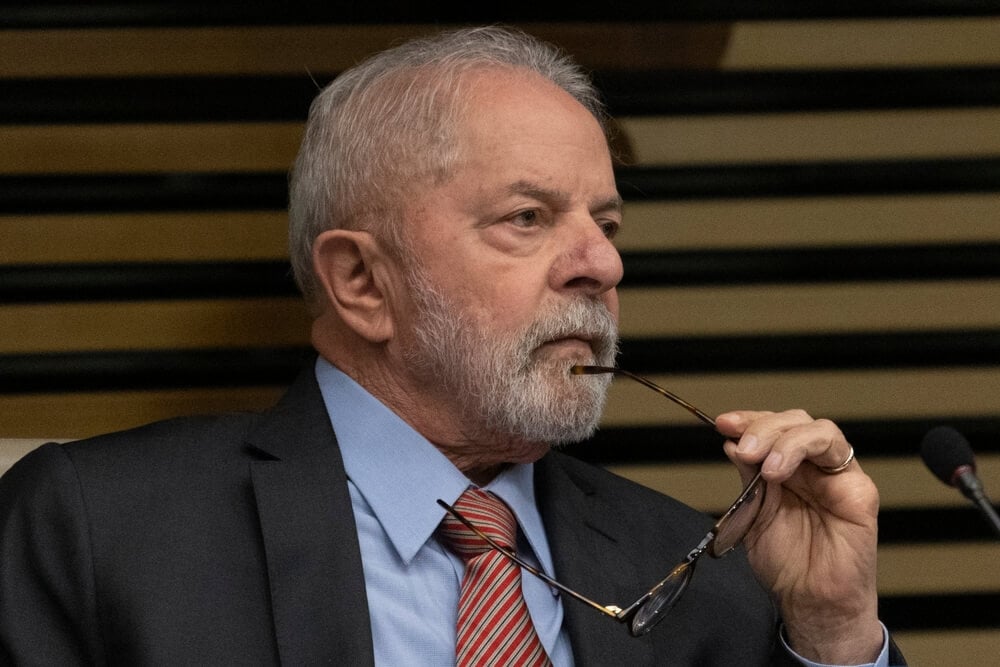The forthcoming summit of the G20 leaders in Brazil is unlikely to surpass the bizarre event that preceded it in terms of publicity, with Brazil's First Lady Janja Lula da Silva and Elon Musk being the main protagonists.
On Saturday, during a speech at a social event commemorating the forthcoming G20 summit, the wife of Brazil's leftist head of state insulted the world's wealthiest man with a "f..ck you." Elon Musk responded to the insult on X, saying, "They are going to lose the next election."
This lively communication between two people who are not among the top global elected leaders reflects the true influence in the field of global power, much more so than will emerge from the forthcoming G20 summit.
The government of Brazil and Elon Musk have just emerged from a major dispute. The Supreme Court banned Elon Musk's platform X for months due to the spread of disinformation during the 2022 presidential election.
Musk's X had to pay a fine of around $5 million to return to the Brazilian market, where it has 20 million users.
Both the Brazilian action against Musk's company and his message (threat?) about losing the next election warrant serious consideration.
Semi-boycott and semi-blockade
The two-day summit of the G20, whose economies account for 80% of global GDP and 75% of global exports, will begin on Monday, and there are almost no indications that it will produce decisions, let alone pave the way for solving some of the biggest political and economic problems.
Crown Prince Mohammed bin Salman, the leader of Saudi Arabia, one of the bloc's members, will not be traveling to the summit in Rio de Janeiro. One explanation for this decision is that the duration of the flight would not be beneficial for his health.
Brazil has set relatively low priorities and goals for its presidency this year, which will culminate in the forthcoming summit in Rio
But the fact that Vladimir Putin, one of Saudi Arabia's most important partners, who is accused of war crimes in Ukraine and wanted by the International Criminal Court, will not be travelling to Brazil is also likely to have contributed to his decision.
Additionally, the absence of the Saudi leader could potentially be attributed to the fact that outgoing President Joe Biden will represent the US, a strategic Saudi partner, without the ability to influence the G20's long-term decisions.
The Brazilian host is aware of the semi-blockade in which the once influential, albeit informal, association of the world's largest economies finds itself. This is why it has set relatively low priorities and goals for its presidency this year, which will culminate in the forthcoming summit in Rio.
Without ambitious goals
Brazil has set social inclusion and the fight against hunger and poverty as one of the three priorities on the agenda of the G20 leaders, aiming to position itself as a leader of the Global South and elevate this topic to a high global level.
In order to achieve this, President Lula da Silva is advancing the idea to establish a task force for a Global Alliance against Hunger and Poverty, which would not be limited to G20 members and would serve as an active and dynamic platform for the operational fight against inequality.
As in the case of similar initiatives to combat climate change, this idea could face insurmountable obstacles if it concludes that there are many more potential beneficiaries of its actions (and money) than those willing to pay.
The Brazilian presidency of the G20 is prioritising the reform of global governance
The Brazilian presidency of the G20 is prioritising the reform of global governance, i.e., the existing multilateral institutions, especially those of the UN system and the international financial system.
Many previous multilateral forums have tried to tackle the redefinition of post-WW2 global institutions and rules, but without success.
The forthcoming summit in Rio will therefore almost certainly not bring any progress in this area either. This is due to existing deep disagreements, for example, over the expansion of the permanent composition of the UN Security Council and the fact that forums such as the G20 are taking on work that should be done elsewhere, for example, at the United Nations.
Brazil, on the other hand, aims to present the guests with an agenda that has the least common factor, ideally leading to a joint declaration. This approach is beneficial for the host, as it avoids a potential fiasco and the participants leaving without a common position on anything.
The dominance of the South over the West
On the other hand, this signifies that the G20 summit concluded another year with a declaration devoid of substance, merely restating principled positions regarding a better world.
Therefore, the G20 summit will take place in a context of deep global division and irreconcilable positions, causing crises and tensions in Ukraine, the Middle East, regarding China, and positions regarding the Global South.
 The G20 summit will take place in a context of deep global division and irreconcilable positions - President Lula da Silva
The G20 summit will take place in a context of deep global division and irreconcilable positions - President Lula da Silva
The forthcoming meeting of global leaders in Brazil is expected to witness a significant dominance of non-Western players over their Western rivals. Chinese leader Xi Jinping will arrive in Rio just after the triumphant opening of a major port in Peru that will serve as an important continental hub for Latin American trade with China.
On the other hand, Chancellor Olaf Scholz will represent Germany, one of the major players in the global economy, in addition to the US, which the outgoing president will represent. However, given his own departure, Scholz's representation will be less legitimate.
The G20 block and its activities and agendas are managed by the "troika," which includes Brazil, the previous and next chair, India and South Africa, all three BRICS members, and the most powerful states and economies of the Global South.